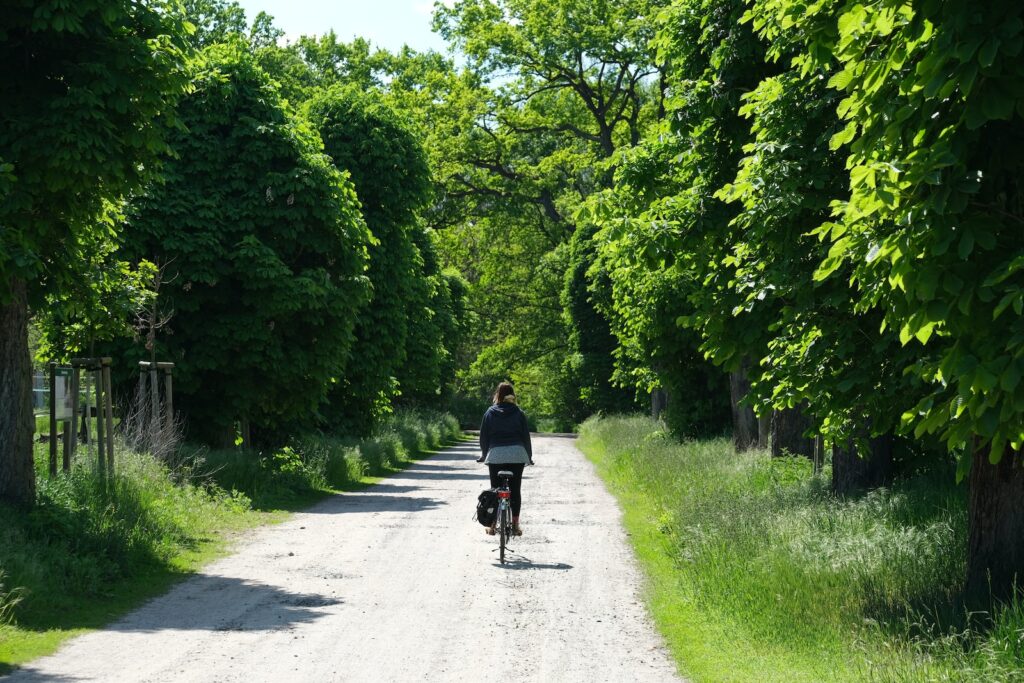Cycling is a great way to commute to work and stay fit. However, daily bike commuting can be challenging, especially when dealing with cycling fatigue. Fatigue is a common issue that affects many bike commuters, and it can be discouraging and demotivating. Fortunately, there are ways to overcome cycling fatigue and make your daily bike commute more enjoyable.
Table of Contents
Summary
To overcome fatigue during cycling, it is essential to understand its causes. Cycling fatigue can be caused by various factors, including dehydration, lack of sleep, poor nutrition, and overtraining. By addressing these factors, you can reduce your risk of cycling fatigue and improve your overall performance. For example, staying hydrated, getting enough rest, and eating a balanced diet can help you maintain your energy levels and prevent fatigue. Additionally, incorporating rest days into your training schedule can help you avoid overtraining and burnout.
Understanding Cycling Fatigue

Fatigue is a common problem faced by daily bike commuters, especially when they are new to cycling. Cycling fatigue symptoms include exhaustion that develops over time and is not relieved by rest. Cycling fatigue can reduce energy, concentration, and overall mindset, making it difficult to enjoy the ride.
The main cause of cycling fatigue is the exercise envolved in it. When a person exercises, their muscles use up stored energy, such as glycogen, which needs to be replenished. If the body does not have enough stored energy, it will start to break down fat and protein for energy. This process cause fatigue and exhaustion.
Another cause of cycling fatigue is overtraining. If a person exercises too much, they can become fatigued and exhausted. Overtraining can also lead to injuries, which can further exacerbate fatigue. As a consequence, bike commuters might feel their performance declining, headaches, increased perceived effort, increased resting heart rate and slower recovery times.
To overcome cycling fatigue, it is important to understand the root cause. If a person is experiencing fatigue due to a lack of stored energy, they may need to adjust their diet to include more carbohydrates. If they are experiencing fatigue due to overtraining, they may need to reduce their exercise intensity or take a break from cycling.
In addition to adjusting diet and exercise, other tips can help overcome cycling fatigue, such as:
- Slow down the ride: Cycling at a slower pace can help reduce fatigue and exhaustion.
- Take breaks: Taking short breaks during a long ride can help reduce fatigue and rejuvenate the body.
- Stay hydrated: Drinking plenty of water and electrolyte-rich fluids can help prevent dehydration, which can cause fatigue.
- Get enough sleep: Getting enough sleep is important for overall health and can help reduce fatigue.
Cycling Techniques and Tips
Pacing and Speed
One of the most important aspects of daily bike commuting is pacing and speed. It is essential to maintain a consistent pace throughout the ride to avoid fatigue. Cyclists should not try to push themselves too hard and should instead aim for a comfortable pace that allows them to maintain their energy levels. It is also important to be aware of the speed at which they are cycling. Cyclists should slow down when necessary, especially when approaching intersections and pedestrians.
Moreover, it’s crucial to understand that the measure of whether you’re going too fast shouldn’t solely be based on the speed of your bike, but more importantly, on your heart rate. This is a more accurate indication of the effort and energy you’re exerting. If you feel the need to slow down, especially due to fatigue, it’s recommended to monitor your heart rate and aim for Zone 2 (aerobic/base), which lies around 65%-75% of your HR max. At this heart rate zone, your body predominantly relies on fat oxidation as a primary source of fuel. This process is less taxing on the body compared to using primarily carbohydrates, and it helps in conserving energy and prolonging endurance.
However, if you find Zone 2 still too demanding or if you’re aiming for a more relaxed pace, especially after a rigorous ride or during a recovery day, then shifting to Zone 1 (recovery/easy) might be preferable. This zone targets around 55%-65% HR max. By keeping your heart rate within this range, you ensure that your body doesn’t overexert, leading to better recovery and a more comfortable ride.
Weather Considerations
Cyclists should always check the weather before they go out for a ride. The biggest weather problem is strong winds. These winds can make you work twice as hard to keep your speed. They can also be dangerous, especially if you’re riding near cars. Winds can push you around and make it hard to stay straight.
When summer comes and it gets hot, riding becomes more challenging. You’ll sweat more, which can make you tired and thirsty faster. Furthermore, the combination of excessive sweat and high exertion can lead to rapid dehydration. To counteract these challenges, cyclists should not only adjust their speed to maintain a comfortable heart rate but also ensure they carry ample water. Drinking enough keeps you safe and helps you ride your best. Because of this, it’s good to slow down and carry lots of water. Also, it’s a good idea to get used to the heat slowly and try to ride when it’s cooler, like early morning or late evening.
Diet and Hydration
Cyclists should also pay attention to their diet and hydration levels. Consuming a balanced diet, rich in carbohydrates, proteins, and healthy fats, is crucial to provide the needed energy for cycling. When it comes to hydration, the amount of water a cyclist needs can vary based on factors like weather and effort level. For someone who weighs 160 pounds and rides 10 kilometers:
- In summer: Due to the increased heat and potential for sweating, they might lose between 1 to 2 liters of water, depending on the temperature and intensity of the ride.
- In winter: The loss may be less, around 0.5 to 1 liter, since cooler temperatures might result in less sweating.
Overcoming Challenges and Staying Motivated

Cycling to work every day can be challenging, especially when faced with fatigue and lack of motivation. However, building a routine and habit, as well as balancing with public transport, can help daily bike commuters overcome these challenges and stay motivated.
Building a Routine and Habit
Building a routine and habit is essential to overcome cycling fatigue and stay motivated. Daily bike commuters should aim to create a consistent schedule that includes enough time for cycling and rest. By doing so, they can train their bodies to adapt to the physical demands of cycling and reduce the risk of fatigue.
To build a routine and habit, daily bike commuters can use the following tips:
- Set a specific time to wake up and leave for work
- Plan the route ahead of time
- Prepare the bike and gear the night before
- Track progress and milestones
By following these tips, daily bike commuters can create a sustainable routine and habit that promotes physical and mental well-being.
Balancing with Public Transport

Combining cycling with public transport has been a great strategy for me as a daily bike commuter to manage fatigue. I typically ride from my home to the train station, bring along my foldable bike, and then ride again from the train station to my hospital. By doing so, public transport provides a sustainable alternative when it’s not practical or safe to cycle the entire distance.
To balance cycling with public transport, daily bike commuters can use the following tips:
- Plan the route ahead of time and identify public transport options
- Use public transport for part of the journey or when cycling is not feasible
- Invest in a foldable bike or bike rack for public transport
By balancing cycling with public transport, daily bike commuters can reduce the risk of fatigue and stay motivated to cycle every day.
Conclusion
In conclusion, overcoming cycling fatigue is possible with the right strategies. Daily bike commuters can benefit from implementing tips such as slowing down their rides, staying hydrated, practicing long rides, building more muscle, and eating a balanced diet.
By following these tips, bike commuters can enjoy the many benefits of cycling while minimizing the risk of fatigue and injury. With adequate rest, physical therapy, and a positive attitude, cyclists can continue to improve their endurance and performance.
FAQ
How do you overcome cycling fatigue?
Overcoming cycling fatigue requires a combination of strategies:
Rest and Recovery: Ensure you’re getting adequate sleep and taking rest days or lighter cycling days to allow your muscles to recover.
Proper Nutrition: Eat a balanced diet with sufficient carbohydrates, proteins, and fats to refuel your muscles and provide energy.
Stay Hydrated: Drink enough water before, during, and after your rides.
Pacing: Maintain a steady pace and avoid pushing yourself too hard, especially during longer rides.
Cross-Training: Engage in other forms of exercise to balance out muscle use and prevent overuse.
Listen to Your Body: If you feel exhausted, consider taking a break or reducing the intensity of your rides.
Why does cycling make me so tired?
Cycling, like any physical activity, requires energy expenditure. Factors contributing to tiredness after cycling include the intensity and duration of the ride, your fitness level, nutrition, hydration, and recovery time. Additionally, using muscles intensively, especially if they aren’t conditioned for cycling, can lead to fatigue.
What are the symptoms of over cycling?
Over cycling, often termed as overtraining when chronic, can lead to:
Persistent muscle soreness.
Chronic fatigue and exhaustion.
Decreased performance and inability to complete usual workouts.
Mood swings, irritability, or depression.
Sleep disturbances.
Increased susceptibility to injuries and illnesses.
Elevated resting heart rate.
Persistent headaches.
Loss of appetite or digestive issues.
A general sense of apathy or lack of motivation towards cycling or other activities.
What is cycling burnout?
Cycling burnout refers to a state of physical, emotional, and mental exhaustion related to cycling. It’s often the result of prolonged overtraining, high stress, or lack of balance between cycling, recovery, and other life activities. Burnout can make individuals feel resistant to or disinterested in cycling, even if they previously loved the activity. It can be accompanied by the symptoms of overtraining, and it may require extended breaks from cycling and holistic approaches to well-being to fully recover.








